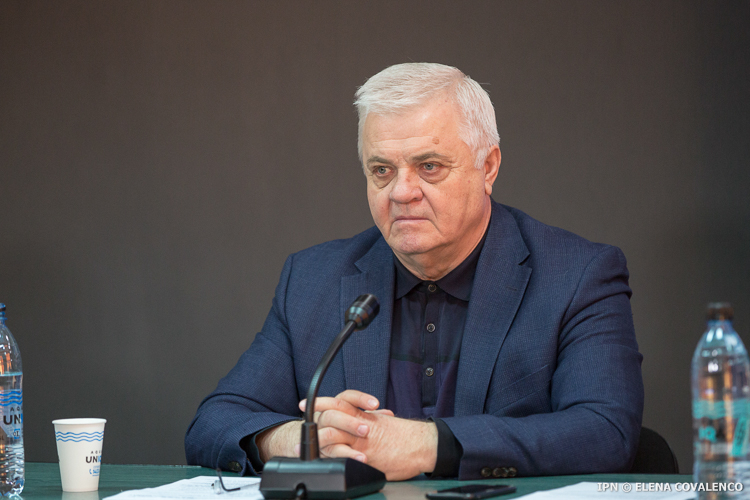Russia’s actions in Ukraine are a follow-up to the aggressive policy pursued by the Russian Empire in time and an attempt to recover territories of historical Russia, Doctor of History Anatol Țăranu stated in a public debate hosted by IPN. According to the historian, Bessarabia suffered from cultural and ideological viewpoints when the province was part of the Russian Empire.
He noted that historical Russia, as the regime of Putin today, had always had imperial ambitions. In the past, Russia tried to conquer territories in order to gain access to the Bosphorus and Dardanelles straits. Now it wants to bring Ukraine back under its sphere of influence.
“The imperial logic implies the conquering of new terror tries and resources. When the empire loses the capacity to add new territories, the period of imperial decadence stars. What happened in 1812 coincided with the ascending phase of the Russian Empire. It continued to expand. In the 19th century, the Russian Empire enlarged. Bessarabia was an element of this enlargement. For the Russians, it was important to conquer both of the Romanian principalities and to go towards Bulgaria and the straits. The Bosphorus and Dardanelles were the fixed idea of the enlargement as the goal was to turn the Black Sea into a Russia lake. There are profound affinities between the aggressive imperial polity of the Russian Empire, of the Soviet Union and what the regime of Putin does now. They do not hide the fact that the war in Ukraine is an attempt to regain what belonged to historical Russia,” stated Anatol Țăranu.
According to the historian, Bessarabia suffered a lot after it was annexed to the Russian Empire in 1812. The spiritual life of the province was suppressed, with any cultural ties with the Romanian space being banned.
“From economic viewpoint, Bessarabia was given a development stimulus. In the 19th century, the population of Bessarabia grew considerably. The population expanded naturally and also as a result of the migration directed to Bessarabia. Those were colonists from outside and inside the Empire and they radically changed the ethnic composition of the province. Against relative economic development, real regression was witnessed as regards the spiritual development of the native population. This was due to the separation of the population from its ethnic continent. Moreover, the government in Petersburg placed an iron curtain on the Prut in order to prevent any attempt to claim this territory by Romania limiting the contacts between the two sides of the Prut to the maximum, primarily from ethnic and cultural viewpoints. This left a profound impact on the cultural and ethnic development of the natives,” stated Anatol Țăranu.
According to the Doctor of History, under the Ottoman occupation, the territory between the Prut and the Nistru was powerfully oppressed from economic viewpoint. The Turks didn’t encroach on the spirituality of the native population. The Russian Empire yet repressed the religion and spirituality of the Bessarabians.
“As Bessarabia became part of the Russian Empire, the church and religious life was subject to very harsh control by the tsarist administration. Unlike the Romanian space, where the church enjoyed a high level of autonomy, in Russia the church was an element of the state and the freedom of the church was limited. In tsarist Russia, there was no patriarch and no autonomous administration. The church was managed by the Synod, while the Synod was a state institution. From this viewpoint, Bessarabia had witnessed contradictory influences as part of the Russian Empire during 105 years,” noted Moldova’s former ambassador to the Russian Federation.
The public debate entitled “Fate of peripheries of empires. Quo vadis, Moldova?” was the seventh installment of IPN’s project “Impact of the Past on Confidence and Peace Building Processes” that is supported by the Hanns Seidel Foundation of Germany.
- Patients from districts, helped by rescuers after ambulances were blocked by ice
- Authorities, in crisis mode. The Army and IGSU intervene in dangerous areas
- Romania will grant Moldova 1.7 million euros for forest assessment
- EU Humanitarian Aid: 8 million euros for the Republic of Moldova in 2026
- Deputy on APL reform: Localities do not disappear, but there will be mergers of town halls


